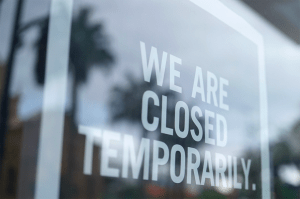Pandemics, natural disasters, and other unfortunate events might be a rarity, but they do happen. While it’s certainly possible we may not experience a major event in the near future, it’s irresponsible to ignore the possibility. After all, there’s an undeniable truth to the old adage, “Better safe than sorry.” Even if it is only a minor occurrence, being prepared is just plain smart.
Fortune Favors the Prepared
You’ve no doubt heard the expression, “Fortune favors the prepared.” The reason it’s been around so long, is because it’s proven true time and time again. When you have a plan in-place, you’re much less likely to panic. Stress and anxiety are very powerful emotions which can cause you to make rash decisions. And, everyone knows that making decisions in a rush often leads to worsening already bad situations.
Today’s business landscape has several unique features, which will add new complexities on top of the historical playbook. This makes it important for business leaders to prepare for the specific circumstances of the next downturn, as well as exploiting the right lessons from the past. —Harvard Business Review
So, knowing what you’re going to do in advance provides you with an immense advantage. You’ll be able to follow along a predetermined path. At the very least, you’ll have parameters in-place to help guide you, should your plan not be totally applicable.
Planning for the Next Big Disruption
We’ve already gone over some of these points before, but most, if not all, warrant repeating. When you prepare, it’s much easier to take decisive action, virtually eliminating the need to debate a course of action. Here are some helpful tips for how to plan for the next unplanned event:
- Ready your team for truly remote capabilities. When the impact of the novel coronavirus was foreboding and uncertain, precautionary steps were the only responsible thing to do. If you allowed your employees to work from home, they did so on the fly. And, since reopening, might have returned part- or full-time to the office. However, they probably did not have and still don’t have all the necessary resources to truly work remotely. Put those tools in place now and this will offer you a more seamless transition if needed in the future.
- Prepare your place of business. We previously discussed protecting a business from vandalism. Although this is unpleasant to think about, it is something that you should plan for. Having the right security and structural preparedness is a necessity to limit damage caused by vandalism. Additionally, you should have prevention and recovery tools in place for other events, like natural disasters, criminal activity, and other unfortunate events.
- Streamline your organization. Due to the global pandemic and subsequent shutdowns, many businesses furloughed or outright terminated employees. But, expenses remained, despite a marked decrease or near complete cutoff of earnings. While you may have made some temporary adjustments or even cut some expenses out altogether, now is an ideal time to re-examine your operations, pinpointing duplication, inflated expenses, and other unnecessary elements.
The overall point being, even if you managed to pull through this last disruption, you may not be able to do so again. Now is an ideal time to plan ahead put in place measures so they are ready to go at a moment’s notice.
What other suggestions do you have getting prepared? Please, take a moment to share your thoughts and experiences by commenting and benefiting others!
Interested in learning more about business? Then just visit Waters Business Consulting Group.



